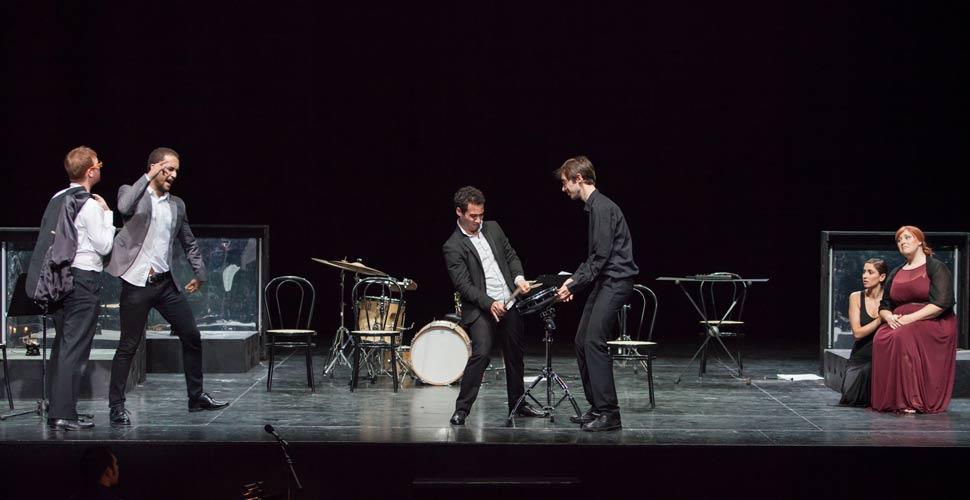Orpheus Moments, seriously a comic opera (2017, 20’) world premiere
Ole Hübner music
Tassilo Tesche libretto
Jakob Boeckh set design and video
Friederike Blum stage direction
Julia Mihály soprano
Timotheus Maas baritone
Pablo Bottinelli tenor
Michael Taylor contralto (counter-tenor)
followed by:
Apnea (2017, 20’) world premiere
Leonardo Marino music
Alice Lutrario stage direction and libretto
Lucia Menegazzo set design and costume design
Licia Piermatteo soprano
Nataliia Vasyliuk soprano
Michael Taylor contralto (counter-tenor)
Timotheus Maas baritone
followed by:
La stessa barca (2017, 20’) world premiere
Raffaele Sargenti music
Antonello Pocetti and Raffaele Sargenti libretto
Antonello Pocetti stage direction
Antonino Viola set design and costume design
Rosario Di Benedetto video design
Licia Piermatteo soprano
Elisa Bonazzi mezzo-soprano
Markos Trittas Kleovoulou baritone
conductor Filippo Perocco
Ex Novo Ensemble
computer music coordination: Tempo Reale / Giovanni Magaglio
production La Biennale di Venezia
